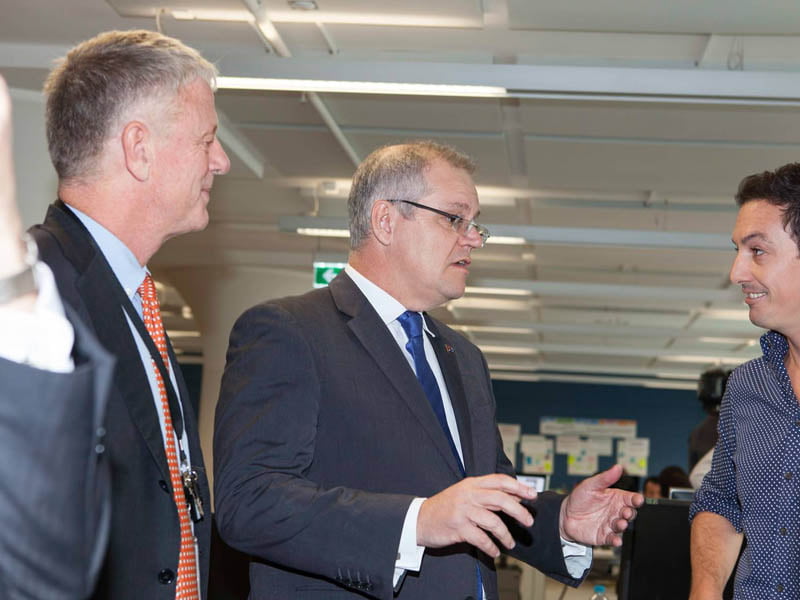Inefficient banking processes are ‘robbing’ small and medium sized enterprises (SMEs) of four weeks’ productive work time a year, says a new report from financial services company Tyro Payments. It says these inefficiencies cost the Australian economy almost $7 billion annually.
Tyro’s ‘Exploring banking inefficiencies for SMEs’ report found that 44 per cent of Australia’s two million SMEs, or about 880,000 businesses, spend more than three hours every week checking, entering, paying and reconciling data.

This costs each business an average of $7,800 a year. The Tyro report also says that:
- 700,000 businesses, or 35 per cent of SMEs, believe their bank could be doing a better job
- Half of all SME owners or operators, about one million people, are doing their own bookkeeping
- 400,000, or 20 per cent, of SME owners or operators don’t use any form of accounting software
“Large companies, with more than 200 employees, make up only 0.3 per cent of businesses operating in Australia,” says Tyro CEO Jost Stollmann.
“The rest are SMEs, who are the creative and innovative heart of the Australian economy generating more jobs than any other sector. But SMEs are drowning under the burden of inefficient online business banking processes.”
Mr Stollmann said many SMEs are unhappy with the performance of their bank. “Banks need to try harder to reduce the burden on Australian businesses,” he says.
“It is clear that business banking requires a rethink. It needs to be mobile, embedded into business and accounting software and fully automated.
“The winners in the business banking of the future will marry deep technology and banking knowhow.”
Despite SMEs playing a critical role in the Australian economy, their contribution to GDP has slowed since 2012, said Mr Stollmann. He believes it is important to identify the major pain points and help SMEs drive future growth.
The report says there are seven of these pain points:
- Scheduling, checking and authorising bill payments
- Entering bills into online business banking
- Payroll functions
- Uploading/downloading ABA payment files
- Reconciliation of banking statements
- Management of term deposit accounts
- Applying for and securing working capital
Mr Stollmann told InnovationAus.com that the last issue is probably the most important.
“Conventional banks only do secured lending. Borrowing money off them is a horrific experience for many SMEs. There is a $60 billion gap in the market, which is now being met by new lenders such as Prospa.”
He says billions of dollars have been spent by the private and public sector to assist SMEs, particularly around improving workplace participation. “But very little has been done to address the issues of access to capital or business and banking improvement processes.”
Mr Stollmann says SME banking was an industry in transition, and the major providers needed to make it easier for customers to do business. “Australia’s small and medium sized businesses are developing into the most attractive banking customers in the country.”
“From a market that was once considered very niche and challenging to serve, SMEs have now become a strategic target for banks.
“This flows on from the global financial crisis, when banks began to shift their focus away from large corporates in an effort to seek high yields in a low interest rate environment. Banks now see SMEs as core to their business.”
“Australia should be looking at action to improve SME productivity, in recognition of the changing terms of trade and resources decline. And SMEs themselves need to embrace new productivity tools, and not just in banking.”
“There is a lot of waste across many business processes. SMEs should work on removing inefficiencies at all stages of their operations.”
He believes that Australia’s banking scene should be greatly improved, in the national interest. “Banking is essentially a public service. It should be run in the national interest – an efficient regulatory environment could give Australia a real competitive advantage.”
Tyro Payments is a Sydney-based payments company founded in 2003 as MoneySwitch. It obtained a full banking licence in August 2015, and in November announced a funding round of $72 million from venture capitalists and existing investors, who include Atlassian’s Mike Cannon-Brookes, MYOB founder Craig Winkler, former Westpac executive David Fite, and former Bankers Trust chairman Rob Ferguson.
Jost Stollmann is himself an interesting story. He first came to Australia after his 40 metre luxury yacht Alithia foundered on a reef in Fiji in 2003 and was repaired here. He liked the place so much he moved to Sydney from Germany permanently in 2004, and soon after invested in and became CEO of Tyro.
Before buying the yacht to sail around the world with his family he was a high profile entrepreneur and politician in Germany. He founded systems integrator CompuNet, which he built into a billion-dollar business before selling it to GE Capital in 1996.
He was then invited to join Germany’s opposition Social Democratic Party, as shadow minister for economics and technology. But politics was not for him, and he left soon following a power struggle after the SPD won Germany’s 1998 election. Too many left wingers in the party doubted his ideological purity.
Do you know more? Contact James Riley via Email.

